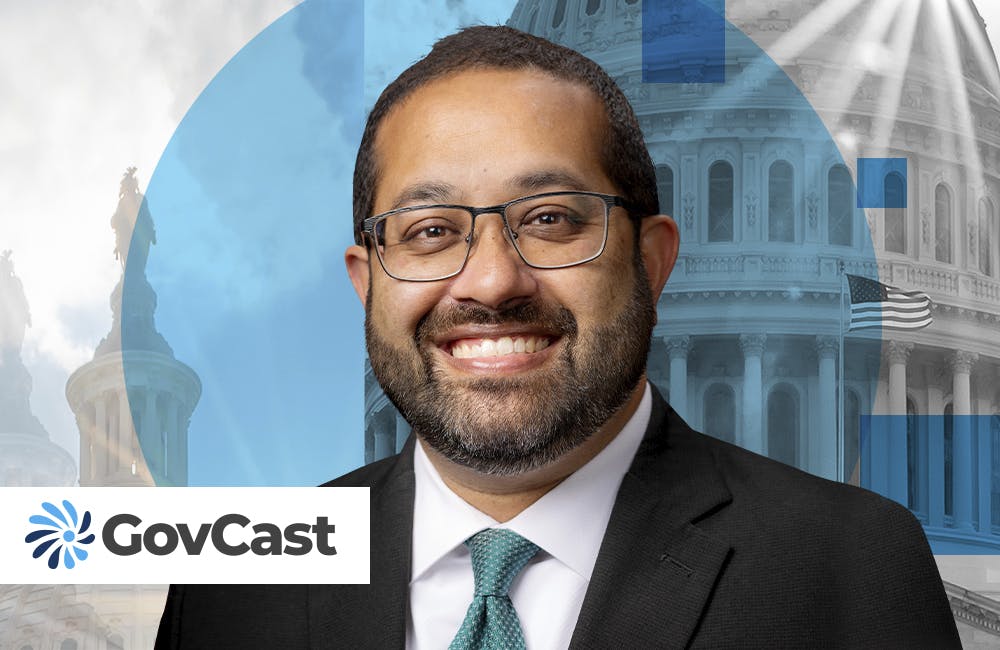VA Reports Increase in Virtual Mental Health Treatment
Expansion in telehealth services has allowed veterans to receive counseling even amidst the COVID-19 epidemic.

Statistics released by the Department of Veterans Affairs indicate VA patients are using the agency’s recently expanded telehealth network to continue receiving counseling and mental health services amidst the COVID-19 pandemic.
Ongoing measures to stem the spread and severity of the pandemic have presented distinct challenges for both mental and physical health care providers, particularly in light of the social distancing necessary to eliminate contagion networks. This has included widespread cessation of in-person meetings with care providers — a particularly difficult interruption for veterans seeking recovery from combat-based trauma.
However, the increasing availability of telehealth services for veterans across the U.S. has allowed patients who are sheltering in place to continue to receive treatment — a process a considerable portion of veterans have chosen to follow even during the first month of the nation’s COVID-19 response. The agency said telehealth group therapy services conducted more than 2,700 visits in March representing an over 200% increase from the month prior.
This is especially vital considering the essential purpose of both behavioral health counseling and the isolating nature of the social-distancing measure currently in place. Being able to connect with care providers as well as other veterans recovering from combat-based trauma will likely help ameliorate the often alienating experience of PTSD even amidst a period of widespread quarantine.
It appears likely that the increasing number of veterans seeking counseling through remote telehealth will continue to rise and persist after the waning of the COVID-19 pandemic. The VA has endeavored to provide services for veterans in more remote parts of the country, with the development of more sophisticated telehealth services providing a sort of universal access irrespective of where a veteran lives and the limitations of locally available resources.
As the agency recently disclosed, mental health care and consultation delivered by phone rose to 154,000 appointments in March, nearly a fourfold increase from the 40,000 reported in February. With social distancing and quarantine measures projected to continue in some form in the short term, particularly amidst periodic rise and declines in regional outbreaks, the VA will likely continue to see an increase in telehealth access as veterans become acclimated to seeking counseling through remote services.
Evidence suggests this increase in telehealth counseling has persisted across all of the agency’s care verticals, with centers that specialize in post-deployment readjustment to civilian life reporting a similar rise in remote consultations — a 200% increase to 47,000 virtual appointments in March above those scheduled the month prior.
Despite the stressors and societal interruptions resulting from COVID-19, it appears the VA’s ensuing focus on increasing mental telehealth access will have the positive consequence of broadening the quantity of America’s veterans receiving post-service adjustment and PTSD counseling. In line with the agency’s broader modernization efforts and preceding focus on telemedicine, this emphasis will likely continue as a mission priority beyond the close of the pandemic.
This is a carousel with manually rotating slides. Use Next and Previous buttons to navigate or jump to a slide with the slide dots
-

DOD Has a New Cyber Resiliency Assessment Program
Defense officials tout the continuous assessment feature and scalability of the new program amid increased cyber threats.
5m read -

Transitioning Systems for Modern Agency Missions
IT modernization is a constant process necessary for improving customer service, mission delivery and collaboration.
40m watch -

Cyber Resilience and Recovery Amid Evolving Cyber Threats
Data durability is a key aspect of NIST’s cybersecurity framework for public and private organizations.
21m listen -

How Tech Enables Environmental Justice at EPA
The agency wants to eliminate bias and establish new tech standards to reduce greenhouse gas emissions.
39m listen








